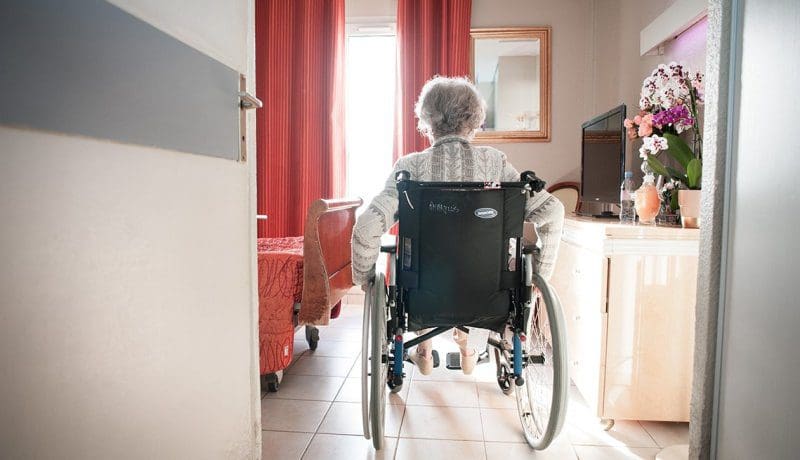Search Posts
Recent Posts
- Rhode Island Weather for June 18, 2025 – Jack Donnelly June 18, 2025
- Johnson & Wales University names Joseph Greene, Providence campus president, to lead major new initiatives June 18, 2025
- To Do in RI: Hospitality employees and Newport Co. residents welcome at free Newport attractions June 18, 2025
- Time for Sour Grapes – June 18, 2025 – with Tim Jones June 18, 2025
- It is what it is: Commentary, 6.18.25 – with Jen Brien June 18, 2025
Categories
Subscribe!
Thanks for subscribing! Please check your email for further instructions.

AARP Letter to Gov. MCKee: End EO giving nursing homes immunity
“It is essential that long-term care providers, as well as health care providers more broadly, remain responsible for any negligent actions to ensure long-term care residents have some protection and opportunity for redress.”
AARP Rhode Island State Director Kathleen Connell today Re-Sent a December Letter to Governor Gina Raimondo to Governor McKee
Dear Governor McKee,
Congratulations on becoming Governor. We look forward to working with you and your new administration. We believe you can have immediate impact on nursing home care by rescinding your predecessor’s Executive Order granting nursing home immunity.
Our December 22, 2020 request to Governor Raimondo was unanswered. You can make a difference for nursing home patients and their families by taking action. Below, review what we wrote, along with the reasoning behind our request. We thank you for your attention to this important matter.
AARP Rhode Island, on behalf of our 131,000 members and all older Rhode Islanders, is sharing our strong opposition to Executive Order 20-21 and its subsequent reauthorizations to grant civil immunity related to COVID-19 for nursing homes and other long-term care (LTC) facilities. AARP has long fought for the rights of residents in nursing homes and other residential care facilities and to ensure their health, safety, quality of care, and quality of life. This includes the right of residents and their families to seek legal redress through the courts to hold facilities accountable when residents are harmed, neglected, or abused.
Nursing homes and other LTC facilities play an important role in America’s long-term services and supports system. There are about 7,558 Rhode Islanders residing in nursing homes. During this time of pandemic, nursing homes and other residential care facilities face unprecedented challenges, and tragically, over 1,025 Rhode Island LTC residents and staff have lost their lives according to The New York Times, representing an unimaginable 73 percent of total COVID-19 deaths in the state. Given the lack of reporting of cases and deaths, as well as testing, we assume this number is a significant undercount. Without increased protective equipment, testing, and treatment protocols, millions more will contract the coronavirus nationally and thousands more people could die. While there may be some circumstances beyond facilities’ control for which they should not be held responsible, it is essential that long-term care providers, as well as health care providers more broadly, remain responsible for any negligent actions to ensure long-term care residents have some protection and opportunity for redress.
Given that most inspections of nursing homes have been suspended, family in-person visits are largely prohibited except in limited circumstances, and in-person long-term care Ombudsman visits are similarly restricted, there are fewer eyes observing what is happening in facilities. Residents of nursing homes and other LTC facilities may be unable to advocate for themselves and now have limited access to people who can advocate on their behalf. This lack of oversight is alarming, and requires us to ensure that, when all else fails, residents and their families will still have access to the courts to seek redress.
Pursuing a nursing home neglect or abuse case in court is not easy to do. No family member who has lost a loved one due to neglect or abuse pursues this course of action lightly. It is always an option of last resort, but it must remain an option. Rhode Island should not strip away the rights and protections of residents. Nursing homes and other LTC facilities should know they will continue to be held responsible for providing the level of quality care that is required of them, and for which they are being compensated. This also incentivizes facilities to self-correct by addressing problems to improve care.
AARP Rhode Island appreciates your consideration of these views and urges you to withdraw Executive Order 20-21 and its reauthorizations. Families all across Rhode Island are looking to you to protect the health and safety of their loved ones living in nursing homes and other residential care facilities. If you have questions, please feel free to contact me at kconnell@aarp.org or (401) 248-2670.
————-
Governor McKee, it is time to remove this concern many have for the safety and well-being of their loved ones. Rescind Executive Order 20-21.
Sincerely,
Kathleen Connell Phil Zarlengo
State Director, AARP Rhode Island State President, AARP Rhode Island

